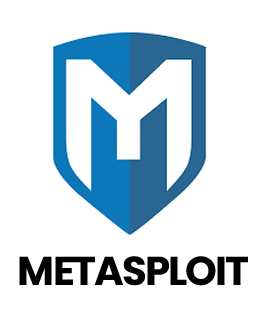ACTE online Training provide Cyber Security,it will educate you on how to protect computers, applications and networks from unauthorized and malicious users or software. It will cover the key cybersecurity concepts of cryptography, cyber forensics and network security in addition to topics such as mobile network security, cloud security, and ethical hacking techniques and tools. This Cybersecurity program will also address supporting concepts of information system security that are integral parts of cybersecurity.
cybersecurity courses include information security, ethics, network management/analysis, programming and scripting, operating systems, and database management. Building on those foundational topics, the curriculum will also develop students' skills in the areas of risk analysis, cryptography, vulnerability testing, access control implementation, and security audit performance. Graduates of this program will be able to proactively implement sound security practices to mitigate security risks and respond quickly to security breaches and issues that may have occurred.
- Huge salaries are being paid to experienced cyber security professionals.
- Cyber Security is one among the most comprehensive and hot-skills in the current market with more and more companies seeking skilled professionals.
- ACTE Cyber Security training can be a game changer for many students looking for concrete knowledge and skills to establish themselves as certified professionals.
India has turned into a hotbed for Cyber Security experts. According to a recent study by Indeed.com, the scope of Cyber Security has turned more competitive in India. There are more job post clicks in India as compared to the US and UK.Over the last a couple of years, the average salary of a Cyber Security professional has been performing 9% better than any other IT professionals. The freshers are able to get good packages starting from 7 lacs and the experienced resources are in more demand drawing salaries in the range of 20-24 lacs.
As per the industry stats, most hiring is happening for the below roles:
- Network Security Engineer
- Cyber Security Analyst
- Security Architect
- Cyber Security Manager
- Chief Information Security Officer
YES,Cybersecurity is an attractive career for ambitious people and a great way to make the world a better place.One of the biggest reasons as to why cybersecurity is more in demand is that for few years, there have been many cases of hackers, cyber attacks, which harms the privacy and security of the computer and its users along with stealing of the data.To prevent this, there is a requirement of an expert in cybersecurity, and for this cybersecurity, courses are important.
As you can see, there are endless paths your cybersecurity career can lead you down. But first, you have to start somewhere. ACTE Academy’s new Cyber Security Bootcamp course is a great accelerated education option for you to learn the essential skills, knowledge, and technologies you’ll need to venture into any cybersecurity career you desire. Through our industry-led IT training from current cybersecurity professionals, ACTE Academy will help you master sought-after skills and prepare you for a career in cybersecurity. Whether you’re just getting your feet wet in the IT industry or wanting to take your IT career to the next level, ACTE Academy offers hands-on technology courses you need to upskill or change careers.
We are happy and proud to say that we have strong relationship with over 700+ small, mid-sized and MNCs. Many of these companies have openings for Cyber Security .Moreover, we have a very active placement cell that provides 100% placement assistance to our students. The cell also contributes by training students in mock interviews and discussions even after the course completion.
Here are 5 best programming languages to learn to make your cyber security career worthwhile.
- C and C++ C and C++ are critical low-level programming languages that you need to know as a cyber security professional.
- Python
- Cyber SecurityScript
- PHP
- SQL
- Wrapping up
Prior knowledge in the following areas is required to take up this training:
- Network Security
- Systems Administration
- Database Applications
- Data Recovery
NO,The first thing to learn would be how to program. You can't really do cybersecurity without fairly good programming skills. You can't defend against attacks you can't comprehend, and many cyberattacks have a very technical nature to them.Since different technologies have different weaknesses, becoming knowledgeable about cybersecurity actually involves learning about many languages and technologies.
A good starting point would be to:
- Learn to program in a language in which learning is easy (e.g. Python)
- Learn how low-level details of a computer work and learn and really understand the C programming language. Many exploits target low-level characteristics of a machine. If you do a good job learning C, you will at least start by understanding how a few kinds of vulnerabilities work, for example use-after-free, buffer overrun, and integer overflow vulnerabilities.
Our courseware is designed to give a hands-on approach to the students in Cyber Security . The course is made up of theoretical classes that teach the basics of each module followed by high-intensity practical sessions reflecting the current challenges and needs of the industry that will demand the student's time and commitment.
Yes,There are several benefits in learning cybersecurity, which are listed below.
- Qualified cybersecurity professionals are currently in extremely high demand.
- This profession offers employees an unlimited potential for growth.
- Employees can work on either a full-time or part-time consultant basis.
- Cybersecurity professionals can secure a sizable income and excellent job benefits.
- Employees will be able to choose from a variety of different job prospects all over the globe.
- People in this field will be able to have a positive impact on the lives and careers of their clients.
Networking is a vital area of many IT job roles and gaining the applicable expertise and passing Cyber Security exams in this area will greatly enhance your employability.
Its better to select ACTE which comprises these below factors.
- Appropriate training with well Equipped facilities.
- Technical Cyber Security certifications
- Complete knowledge in the Cyber Security experiments and Networking.
- Technical theory
- Mock Interviews
The cyber security industry is flourishing. With data breaches affecting all sectors of industry, organizations are clamoring to hire IT security professionals.There’s a huge demand for cybersecurity, but a shortfall of qualified personnel. According to CSO,there will be 6 million job opportunities for information security professionals—but only 4.5 million security professionals to fill those roles.”
Here are a few reasons for you to pursue a career in Cyber Security :
- Practically unlimited growth. With an ever-expanding scope, cybersecurity presents the ultimate growth potential—both in your career path and for learning opportunities.
- Exciting career progression opportunities
- Highly demanded field
- Requirements are super basic
- Job Security
Why is Cybersecurity so Important to the Healthcare Industry?
Cybersecurity incorporates a number of technologies to safeguard digital data. Threats come from unauthorized access and internal missteps lead to increased risks that hackers take advantage of. Healthcare is increasingly the target of cybercriminals as bad actors learn how to successfully target unguarded or insufficiently guarded data. This includes data sharing, digital health records and medical devices that send data to hospital systems without protecting the data in transit.
Health informatics makes the process more efficient. The threat of cyber attacks makes technology less reliable than it would otherwise be. At the same time, healthcare professionals rely on technology to retrieve, send and share healthcare data. Due to various cyber threats, every organization needs to invest in solutions that keep data secure without compromising access to technology for those fighting to save lives.
How Has the Digital Revolution Changed Healthcare?
Not too long ago, doctors had to limit their time with patients due to a mountain of complicated paperwork. The digital revolution has helped solve that problem. With fewer handwritten notes and more direct entry into electronic patient files, paperwork and the amount of time devoted to it have decreased dramatically.This is a crucial advancement as the global population soars and the number of healthcare data becomes more difficult to secure. Cybersecurity in healthcare needs to secure the network and database without slowing down the process of providing efficient care.
Does Cybersecurity in Healthcare Save Money?
Cybersecurity saves millions of dollars in the healthcare industry. The industry has grown rapidly in the last two decades. Now, healthcare providers deal with many more patients in an 8-hour shift than they used to in a 12-hour one. This is largely due to the reduced paper trail made possible by digital technology.With cloud-based computing, providers can share information with patients, colleagues and other departments in seconds. At the same time, safely storing and accessing patient data is also much easier.
How Important Is Cybersecurity to Patients?
Patients have the biggest stake in cybersecurity. After all, it’s their data and privacy that are at risk — and possibly their health. Hackers leak private information on the dark web, where it may be picked up to commit identity theft, Medicare fraud, and other crimes. Advanced cybersecurity allows medical professionals to ensure privacy and peace of mind for their patients. This also prevents legal issues related to hacked patient data.
Healthcare practices are at a disadvantage due to the many endpoints in the system, including the Internet of Things (IoT) devices that feed data into the network from various endpoints. Specifically, tablets introduce vulnerability because they hold patient health records or are used to access them. No matter how much administrators shore up the network, it only takes one outdated device to open the healthcare provider up to an attack.
What Improvements Need to Be Made?
Healthcare organizations can take the following steps to secure their data:
- Patch systems based on the recommendations of system and application vendors
- Open only required ports
- Scan systems to identify vulnerabilities
- Prioritize system vulnerabilities based on risk severity
- Enable SSL certificates and test to ensure they’re working as expected
Cybersecurity challenges in health care
The newest cyber vulnerabilities are not necessarily an organization’s biggest cyber threat. Verizon’s 2016 Data Breach Investigations Report found that most breaches are about money and attackers usually take the easiest route to obtain the information they need. Consequently, many common threats continue to be problematic in health care, including:
- Malware and ransomware: Cyber criminals use malware and ransomware to shut down individual devices, servers or even entire networks. In some cases, a ransom is then demanded to rectify the encryption.
- Cloud threats: An increasing amount of protected health information is being stored on the cloud. Without proper encryption, this can be a weak spot for the security of health care organizations.
- Misleading websites: Clever cyber criminals have created websites with addresses that are similar to reputable sites. Some simply substitute .com for .gov, giving the unwary user the illusion that the websites are the same.
- Phishing attacks: This strategy sends out mass amounts of emails from seemingly reputable sources to obtain sensitive information from users.
- Encryption blind spots: While encryption is critical for protecting health data, it can also create blind spots where hackers can hide from the tools meant to detect breaches.
- Employee error: Employees can leave health care organizations susceptible to attack through weak passwords, unencrypted devices and other failures of compliance.
Another growing threat in health care security is found in medical devices. As pacemakers and other equipment become connected to the internet, they face the same vulnerabilities as other computer systems. To ensure patient safety, the U.S. Food & Drug Administration recommended that both the manufacturer that creates the device and the health care facility that implants it take preventive security measures.
Strategies for improving cybersecurity
Due to the significant financial impact of data breaches in health care, health informatics and other professionals are playing an important role in ensuring that medical organizations remain secure.According to HealthIT.gov, individual health care organizations can improve their cyber security by implementing the following practices:
1. Establish a security culture: Ongoing cybersecurity training and education emphasize that every member of the organization is responsible for protecting patient data, creating a culture of security.
2. Protect mobile devices: An increasing number of health care providers are using mobile devices at work. Encryption and other protective measures are critical to ensure that any information on these devices is secure.
3. Maintain good computer habits: New employee onboarding should include training on best practices for computer use, including software and operating system maintenance.
4. Use a firewall: Anything connected to the internet should have a firewall.
5. Install and maintain anti-virus software: Simply installing anti-virus software is not enough. Continuous updates are essential for ensuring health care systems receive the best possible protection at any given time.
6. Plan for the unexpected: Files should be backed up regularly for quick and easy data restoration. Organizations should consider storing this backed-up information away from the main system if possible.
7. Control access to protected health information: Access to protected information should be granted to only those who need to view or use the data.
8. Use strong passwords and change them regularly: The Verizon report found that 63 percent of confirmed data breaches involved taking advantage of passwords that were the default, weak or stolen. Health care employees should not only use strong passwords, but ensure they are changed regularly.
9. Limit network access: Any software, applications and other additions to existing systems should not be installed by staff without prior consent from the proper organizational authorities.
10. Control physical access: Data can also be breached when physical devices are stolen. Computers and other electronics that contain protected information should be kept in locked rooms in secure areas.
In addition to these recommendations, health data professionals are continually developing new strategies and best practices to ensure the safety of sensitive health data, protecting both the patient and organization from financial loss and other forms of harm.








































